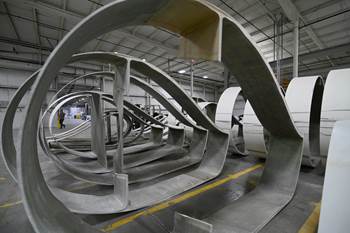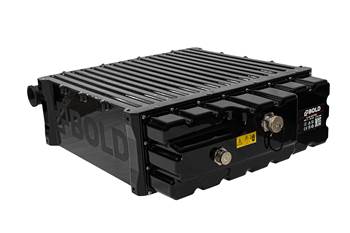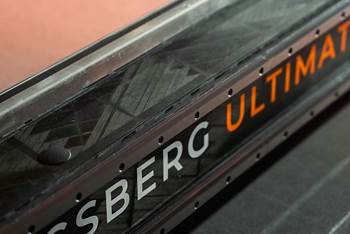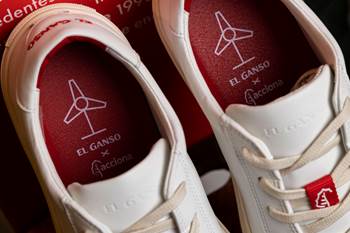Search Results
Showing 51 – 60 of 2660 results
High-pressure gas storage vessels represent one of the largest and fastest-growing markets for advanced composites, particularly for filament-wound carbon fiber composites. Although they are used in self-contained breathing apparatuses and provide oxygen and gas storage on aerospace vehicles, the primary end markets are for storage of liquid propane gas (LPG), compressed natural gas (CNG), renewable natural gas (RNG) and hydrogen gas (H2).
Filament winding is a specialized technique used in composite manufacturing, involving the precise and automated winding of continuous fibers onto a rotating mandrel or mold. This method allows for the creation of strong and seamless structures, optimizing the alignment and orientation of the fibers to meet specific design requirements. Filament winding is employed in producing cylindrical or conical composite parts, such as pipes, pressure vessels, and aerospace components, enabling engineers to tailor the strength, stiffness, and performance characteristics of the final product.
Processes in composites manufacturing encompass a diverse array of techniques employed to fabricate composite materials. These processes include methods like hand layup, where layers of resin and reinforcement materials are manually placed, and vacuum infusion, where a vacuum draws resin into a preform. Other techniques like compression molding, filament winding, and automated methods such as 3D printing are utilized to create intricate and specialized composite structures. Each process offers unique advantages in terms of precision, scalability, and efficiency, catering to diverse industry needs. As technology advances, newer methods are emerging, promising faster production cycles, reduced waste, and increased customization, driving the evolution of composite manufacturing towards more sophisticated and versatile methodologies.
The wind energy market has long been considered the world’s largest market, by volume, for glass fiber-reinforced polymer (GFRP) composites — and increasingly, carbon fiber composites — as larger turbines and longer wind blades are developed, requiring higher performance, lighter weight materials. The outer skins of wind and tidal turbine blades generally comprise infused, GFRP laminates sandwiching foam core. Inside the blade, rib-like shear webs bonded to spar caps reinforce the structure. Spar caps are often made from GFRP or, as blade lengths lengthen, pultruded carbon fiber for additional strength.
JEC World 2024: Roth Composite Machinery is co-exhibiting with partner mefex GmbH to present new developments to its µRoWin software for automated filament winding.
Ohio-based Canvus Inc. upcycles fiberglass wind blades, car tires and post-consumer plastics to create outdoor furniture that amplifies sustainability messages in community spaces.
Efforts are ramping up to support the growing demand for offshore wind in Europe, with the wind blade factory starting operations in 2026, and a previously announced nacelle assembly facility in the same location in 2025.
A look at recently reported design, material and process innovations for composites-intensive battery enclosures, developed to support the ramp-up of EV and AAM vehicles.
JEC World 2024: Custom-designed carbon fiber/epoxy components and automated fiber winding machine offerings will be on display, emphasizing CompoTech’s focus on designing and supplying turnkey composites technologies.
Made using CompoTech’s robot-assisted winding technology, the Type 4 or 5 multi-cell tank is designed to be integrated into an aircraft wing root.
Exclusivity agreement applies to using Luran SC in leading edge protection (LEP) for wind turbine applications.
Ciject resin infusion and injection machinery now offers real-time resin degassing measurement technology that uses sensors and software to continuously monitor the state of resin during the degassing process.
Fourth commercial-scale wind farm off of Rhode Island joins Vineyard Wind, South Fork Wind and Ocean Wind 1 projects, brings U.S. construction pipeline to 2.7 GW.
Limited-edition sneakers feature soles composed of micronized dismantled wind blades from a wind farm in Navarra, Spain.










